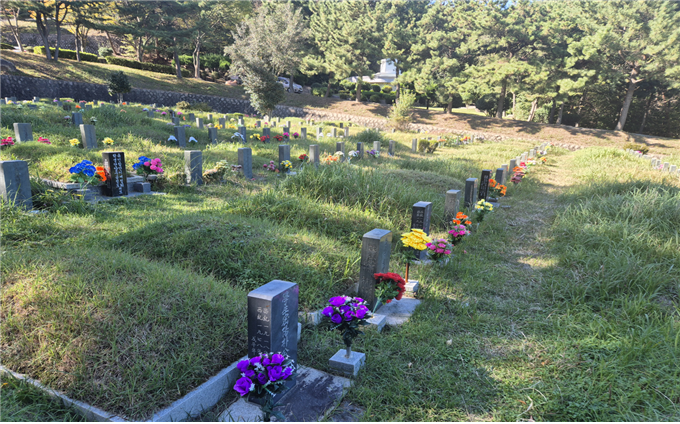Busan, South Korea -Busan has announced an initiative to prohibit the use of plastic flowers in public cemeteries starting in 2025. This measure is aimed at addressing environmental concerns related to plastic waste. As part of the initiative, the city recently conducted a cleanup effort, removing 7.1 tons of plastic flowers from Busan Yeongnak Park. The cleanup was carried out in collaboration with the Busan Facilities Corporation and senior job program participants.
The use of artificial flowers in memorial services has been a long-standing tradition in Korea, especially during holidays such as Seollal (Lunar New Year). However, concerns have been raised regarding the environmental impact of plastic materials, which contribute to waste accumulation and microplastic pollution. In response, the city introduced the policy in 2023 through an agreement to reduce plastic usage in cemeteries, in alignment with upcoming discussions on global plastic reduction efforts.
The cleanup was conducted in two phases. The first phase in December 2024 resulted in the collection of 5.1 tons of plastic flowers, followed by the second phase in January 2025, which removed an additional 2 tons. The initiative involved collaboration among local authorities, environmental groups, and volunteers.
To support the implementation of the ban, the city plans to conduct public awareness campaigns through various channels, including banners, newsletters, social media, and community outreach efforts. Alternative options such as fresh flowers and dried arrangements will be promoted in collaboration with local vendors.
City officials have indicated that the initiative is expected to contribute to waste reduction and environmental sustainability. The Director of Busan’s Environmental Policy Department stated that efforts will focus on encouraging sustainable practices while ensuring a smooth transition for cemetery visitors.
While the initiative has received positive feedback, some challenges have been identified. Certain groups, particularly those accustomed to using plastic flowers, have expressed concerns regarding convenience and cost. The city is working to address these concerns by providing information on sustainable alternatives and engaging with the community.
Other cities in South Korea and globally have implemented similar measures to reduce plastic waste. Busan aims to learn from these experiences to further refine its approach and address any potential challenges effectively.
As the initiative progresses, the city plans to monitor its implementation and assess its impact. This policy forms part of Busan’s broader efforts to minimize single-use plastics and promote sustainable practices across various sectors.
The plastic flower ban in Busan cemeteries is intended to support environmental sustainability efforts while respecting cultural traditions. Through ongoing community engagement and policy adjustments, the city aims to facilitate a transition toward more environmentally friendly memorial practices.



